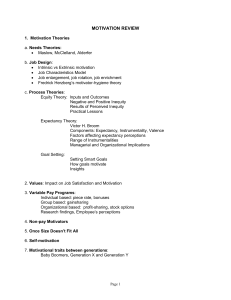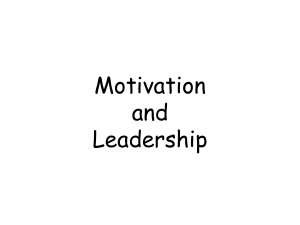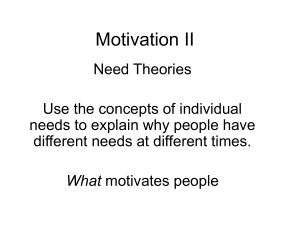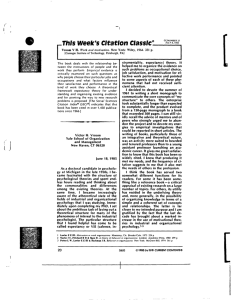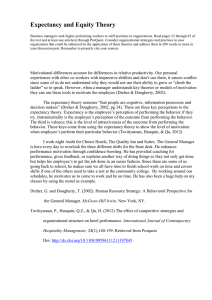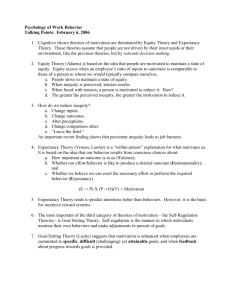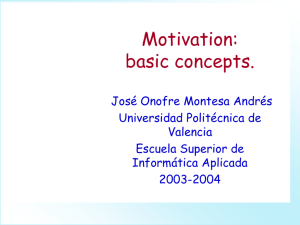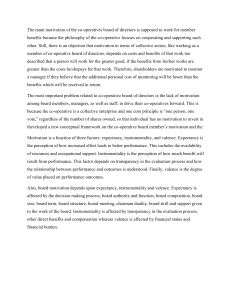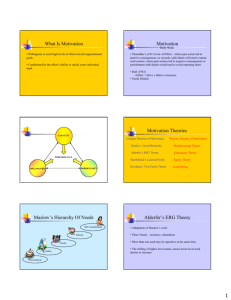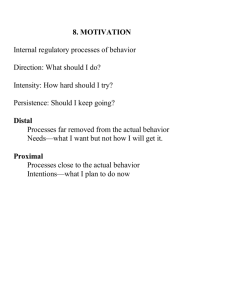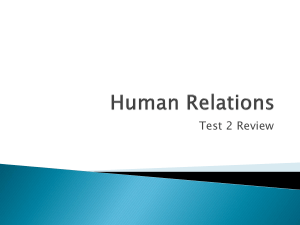Module 10 * Leadership
advertisement
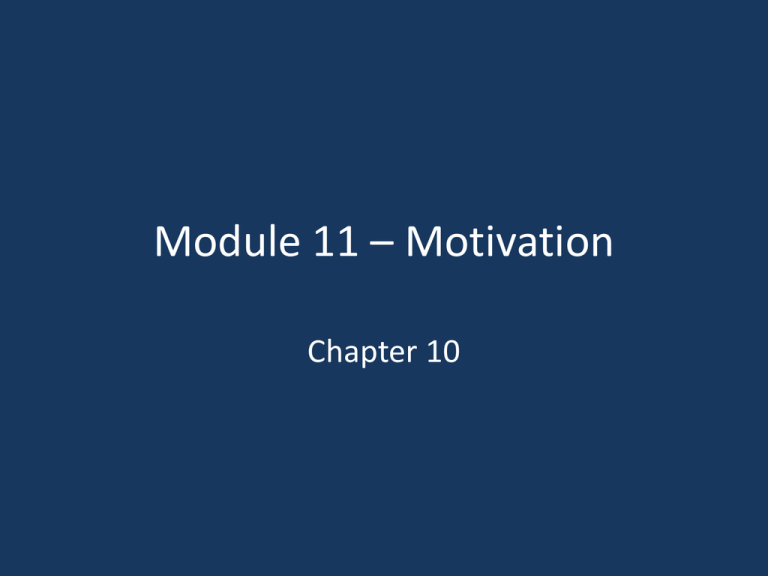
Module 11 – Motivation Chapter 10 Learning Objectives LO 1 Identify the kinds of behaviors managers need to motivate people LO 2 List principles for setting goals that motivate employees LO 3 Summarize how to reward good performance effectively LO 4 Describe the key beliefs that affect peoples’ motivation 10-2 Learning Objectives (cont.) LO 5 Discuss ways in which people’s individual needs affect their behavior LO 6 Define ways to create jobs that motivate LO 7 Summarize how people assess fairness and how to achieve it LO 8 Identify causes and consequences of a satisfied workforce Office Space TPS Reports 10-3 Motivation • Definition • Caveats People Skills Office Space Interview Motivation Process Needs Satisfied?? Behavior Goals Theory X • • • • • Inherent dislike of work Job less important than $$$$ Self-centered Follow, don’t lead No self-direction, self-control Traditional View But sometimes….. 2 schools of thought • Content theories – It’s (almost) all within • Process theories – It’s (almost) all the environment Content theories • Overview – External environment plays a role – Primary needs – Secondary needs • Maslow • Alderger • McClelland Maslow’s Need Hierarchy • “Ego” also known as “esteem” 10-15 Alderfer’s ERG Theory • Definition • Existence needs • Relatedness needs • Growth needs 10-16 McClelland’s Needs • Need for achievement – strong orientation toward accomplishment and an obsession with success and goal attainment • Need for affiliation – reflects a strong desire to be liked by other people • Need for power – a desire to influence or control other people 10-17 Process theories • Herzberg – See text • Expectancy Theory – Equity Theory – “There is nothing so practical as a good theory” Expectancy Theory • Major components – Choice – Expectancy – Instrumentality – Valence (preferences) Porter and Lawler Porter and Lawler Porter-Lawler Expectancy Theory EXPECTANCY Ability Extrinsic VALENCE INSTRUMENTALITY Motivation Effort Performance Resources Satisfaction? Intrinsic Satisfaction is relative…….. • Equity theory 10-24 Satisfaction is relative…….. • Best paid player in NFL • Offered $7-$10m, $20m guaranteed • Demanded $13m, $35m guaranteed Assumption #1 Assumption #2 Assumption #3 Assumption #4 Managerial Implications of Expectancy Theory 1. Increase expectancies 2. Identify positively valent outcomes 3. Make performance instrumental toward positive outcomes 10-31 Key Extensions • Intrinsic – long lasting – more effective • Extrinsic: – High valence – Based on identifiable, recognizable criteria • Performance is measurable • Understandable – Sufficient variation in magnitude Summary • • • • Can’t motivate anyone Create environment allowing self-motivation Offer freedom, discretion, autonomy Motivation can overcome skill deficits You and the environment (non-green) • Goal-setting theory And then you…… • Reinforcement theory – See text – Schedule of reinforcement And then you…… • Job enrichment And now………… • The way it used to be........ Job Rotation, Enlargement, and Enrichment • Job enrichment – Fundamental change • Job rotation – Changing from one routine task to another to alleviate boredom • Job enlargement – Giving people additional tasks at the same time to alleviate boredom. 10-38
